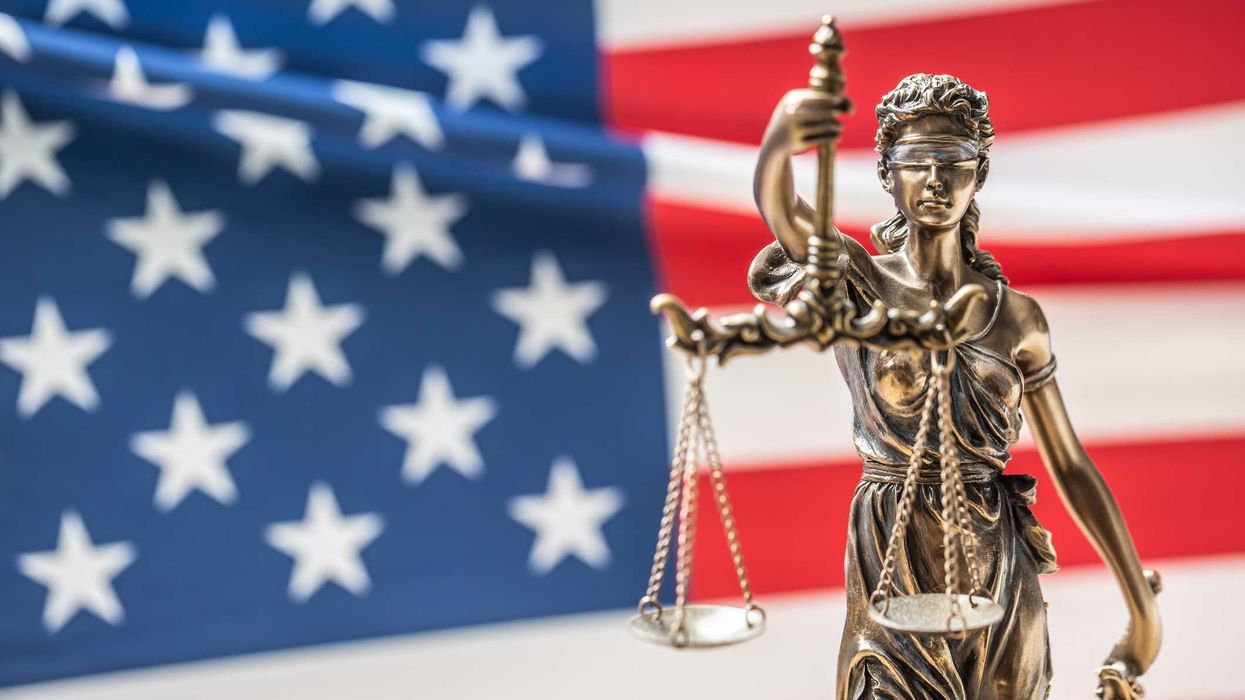In times of democratic strain, clarity must come not only from scholars and journalists but also from those who have sworn to uphold the Constitution with impartiality and courage.
This first in a series in the Fulcrum, “Judges on Democracy,” invites retired federal judges to speak directly to the American public about the foundational principles of our legal system: the separation of powers, the rule of law, and the indispensable role of an independent judiciary in our democratic republic.
These voices are not partisan. They are principled. Having served on the bench with fidelity to law over politics, these jurists now step forward — to advocate for any party or agenda, but to illuminate the constitutional architecture that protects liberty and equality for all.
Their reflections are rooted in experience, not ideology. Their warnings are grounded in precedent.
At a time when threats to judicial independence are growing more frequent and more brazen, The Fulcrum offers this series as a civic resource and a moral compass. We believe that understanding how our courts function and why their integrity matters is essential to preserving the democratic experiment our founders envisioned.
Today, Judge Winslow Bissell—who President Ronald Reagan nominated to the U.S. District Court for the District of New Jersey in 1982, was appointed and confirmed by the Senate in the same year, and held the position of Chief Judge from 2001 until his retirement in 2005—answers some questions that are reminders that the judiciary is not a tool of power; it is a bulwark against its abuse.
Why did the framers enshrine an independent judiciary—and how does that safeguard our democracy today?
The framers enshrined an independent judiciary because of experiences during the colonial period. These experiences often included having to travel to England to be confronted with courts of the Star Chamber, usually held in secret and subject to the power of the British Monarch. The framers thus established a federal judiciary, with tenure during “good behavior," where compensation of those judges could not be reduced during their terms in office. Then, as now, federal judges, free of concerns about removal from office except in extraordinary circumstances, are able, in legal proceedings brought before them, to preserve and enforce the rule of law and to administer justice to the parties.
Why are retired judges speaking out now—what compels you to break tradition and raise your voice?
We speak now (a) because we can, now unfettered by proper limitations when we were in office, (b) because we can speak from years of experience in being in the shoes of current judges, and (c) because we must where now our nation is confronted with verbal and sometimes physical assaults and threats, leveled at judges and the federal judiciary as an institution, beyond anything in our nation’s history. Our President, who should be leading the defense of the Judicial Branch, is, in fact, leading the assaults. Congress is both paralyzed and polarized, and is thus incapable of emphasizing the importance of an independent judiciary’s power to ensure that the rule of law prevails. Finally, and most regrettably, aside from a few extra-judicial pronouncements, the U.S. Supreme Court does not have the backs of our District and Circuit Judges.
Why is using impeachment to challenge judicial decisions a threat to constitutional balance?
Impeachment is a tool for the removal of a federal judge from office for specified conduct that clearly does not include the mere challenging of an adverse judicial decision. As such, it is a lame threat that has little chance of being brought by the House of Representatives and even less likelihood of achieving a super majority to convict in a trial before the U.S. Senate. Threats of impeachment are likely hollow, designed by their authors to garner or hold political support, but they are nonetheless dangerous because they lessen the public’s faith in an independent judiciary.
What do you wish more Americans understood about the role of judges in preserving liberty and equality?
More Americans, unschooled in the law, should understand that federal judges are true neutrals with no political dog in the fight, who are called upon to decide cases, not causes. Civil lawsuits and criminal prosecutions come to us; we neither seek nor initiate them. Individual liberties and equality among residents of our country before the law are values that the courts are bound to enforce or redress. However, there are cases where our duty to apply the law as it is may result in a perceived injustice. Rectifying that situation, however, is the job of either Congress or a state legislature, not the courts.
What moment from your time on the bench best captures the weight—or wonder—of serving justice
This occurred in my journey through litigation involving New Jersey’s Megan’s Law. This involved, at first, my issuance of a preliminary injunction against that law’s enforcement to preserve the status quo. Several weeks later, in deciding cross-motions for summary judgment on the merits, I upheld the constitutionality of that statute, which by then had been amended at the direction of the Supreme Court of New Jersey to remove an otherwise fatal absence of due process for previously convicted sex offenders. I also held that, in light of an intervening and analogous decision of the U.S. Supreme Court, arguments based upon double jeopardy and ex post facto failed because sex offender public registration was not an added criminal punishment. I believe that justice was served at each step of this process, despite rants by radio shock jocks that my preliminary injunction would set loose convicted but unknown sex offenders upon our community.




















Trump & Hegseth gave Mark Kelly a huge 2028 gift